CLIMATE CHANGE PROGRAM REVIEW; BY BLACK ALBINISM AND THE US EMBASSY
Months after undertaking the first phase of our climate change action program, we convened a round table to review the successes, challenges and prospective solutions to climate change. We have so far conducted climate change advocacy and awareness in several counties across the country. They include; Machakos, Kitui, Murang'a, Kisumu, Mombasa, and Kajiado. Among the attendees were representatives from the US Embassy, namely Fatuma Dubow and Melanie Stanley who graced the event to assess the project's progress. The gathering also included climate action champions from three counties; Jerrita Mutisya from Machakos, Faith Joseph from Kitui, and Zipporah Ntininie from Kajiado County. Other guests included parents to persons with albinism and friends to Black Albinism.
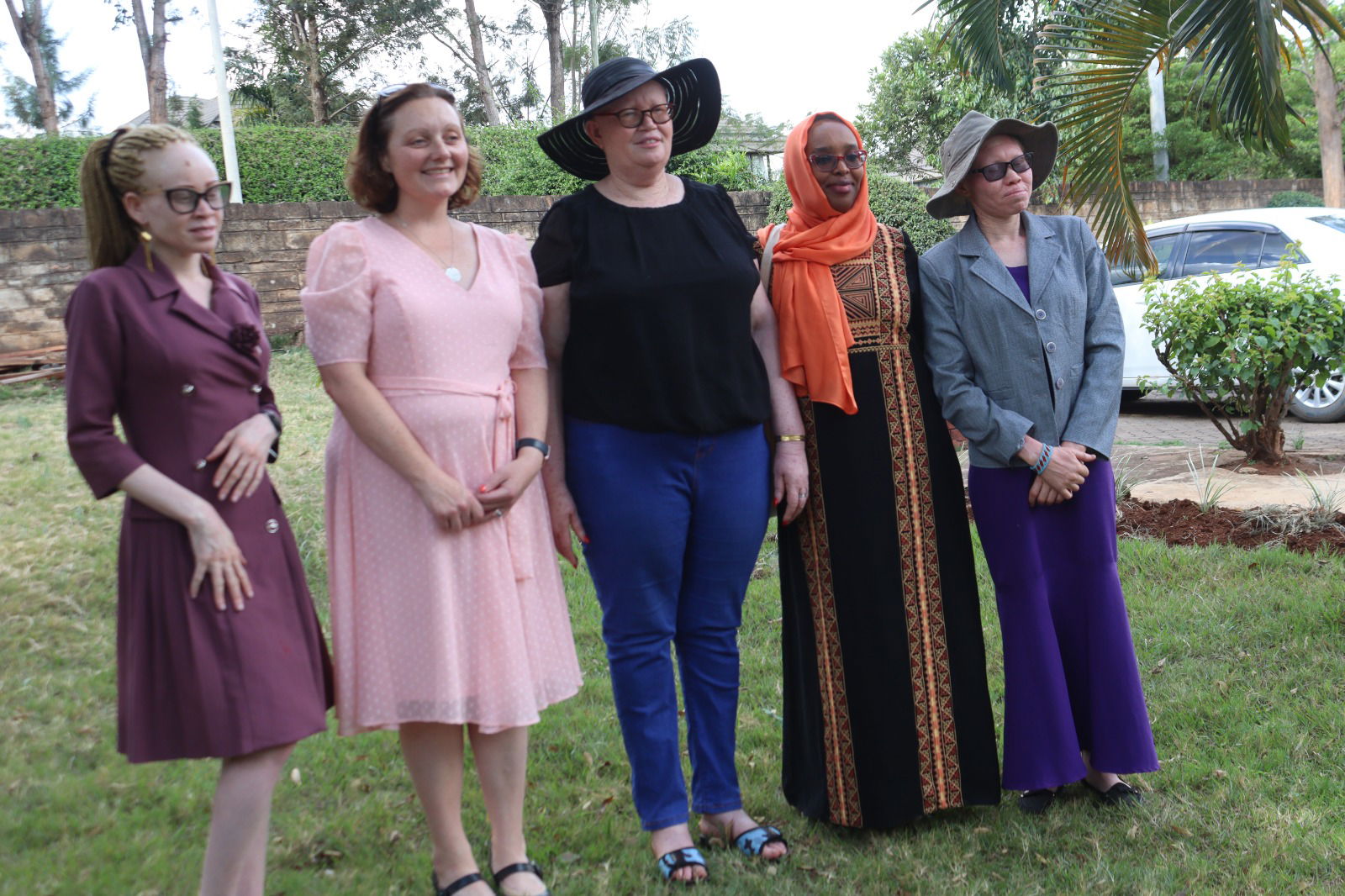
Climate Change Action champions and representatives from the US Embassy
The program, conducted between June and July this year, primarily focused on educating communities, churches, and schools about climate change, its effects and impacts on individuals with albinism. While efforts were made to distribute as much protective gear like sunscreen and wide-brimmed hats during the outreach, these resources proved insufficient due to unforeseen demand. The presented findings from the three climate action champions revealed that individuals with albinism in the represented counties encounter distinct challenges.
In the semi-arid regions of Machakos and Kitui, extreme heatwaves pose a significant challenge especially for individuals with albinism. The extremely high temperatures have forced persons with albinism in Machakos county to cut down on their working hours to either early mornings or late nights to evade the harsh UV radiation from the scorching sun. In Kajiado County, although the national government allocates sunscreen, healthcare providers in various referral hospitals often use these resources, thus neglecting those who need them the most.
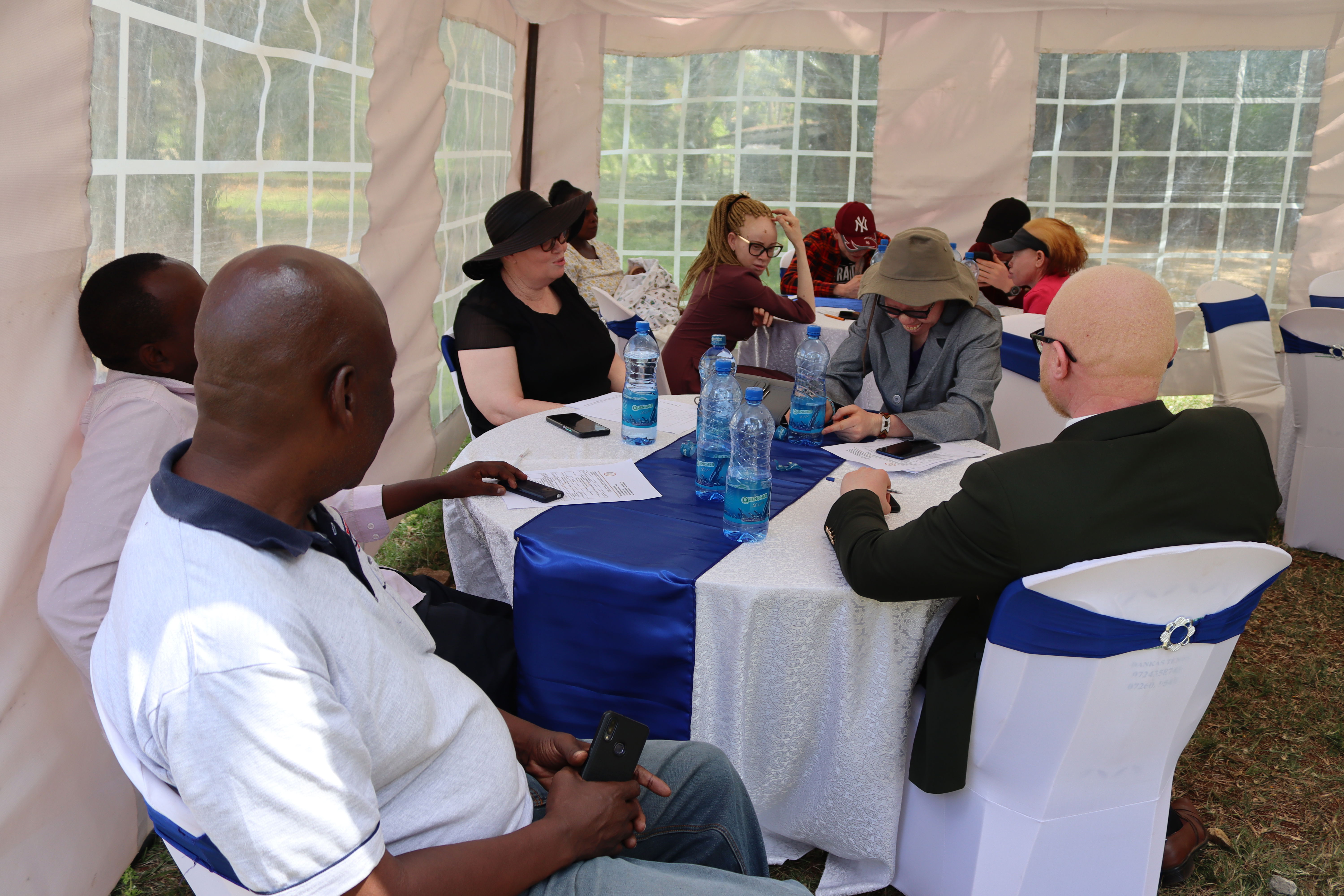
A picture of the attendees of the event
Most of the challenges faced by individuals with albinism are not confined to specific areas but extend nationwide and even beyond. These challenges include limited access to and affordability of sunscreen, high poverty rates among individuals with albinism, discrimination, exclusion from economic opportunities, stigmatization and the lack of awareness about albinism in all the three regions.
The climate change action champions iterated that while raising awareness about climate change and its impact on individuals with albinism, the major challenge lies in ensuring access to essential protective tools such as sunscreen, long-sleeved shirts, wide-brimmed hats, and eye protection. Jerrita Mutisya, a climate action champion from Machakos County, aptly questioned, "How do you tell a person with albinism to protect themselves against the sun when you do not provide them with the means to do so?" Additionally, reaching individuals with albinism in remote areas within these counties was highlighted as financially and logistically challenging.
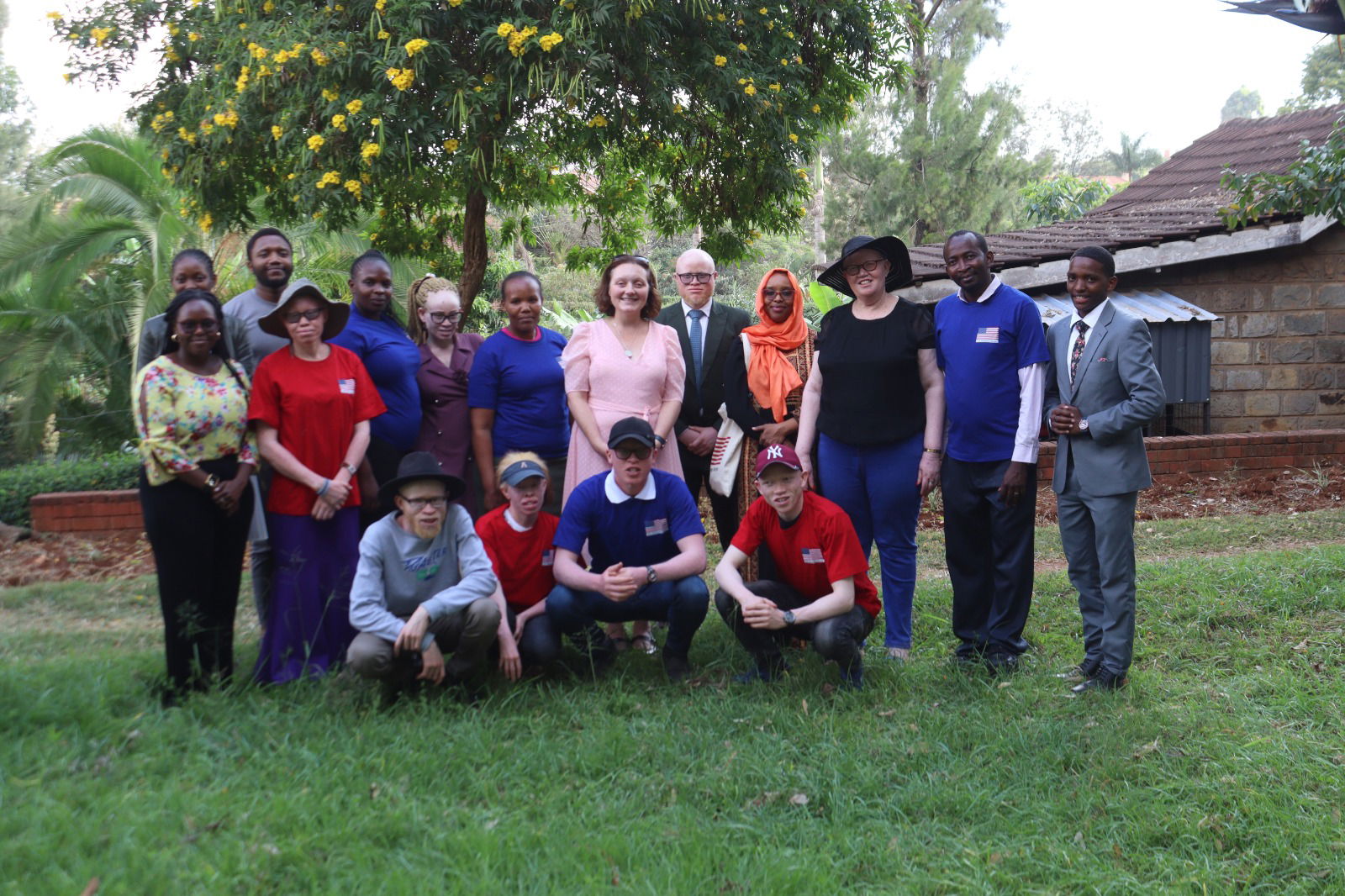
A picture of the attendees of the attendees of the event
In attendance as well was Ruth Njeri, a representative of parents with children with albinism, who shared her perspective as a mother of three, two of whom have albinism. She highlighted the often-overlooked needs of caregivers, financially, emotionally and mentally. She also shed light on the stigmatization faced by mothers of children with albinism, who are unjustly accused of infidelity, leading to abandonment by their spouses. Consequently, a significant percentage of children with albinism are raised by mostly single mothers. Ruth emphasized that children with albinism are human beings deserving of equal treatment.
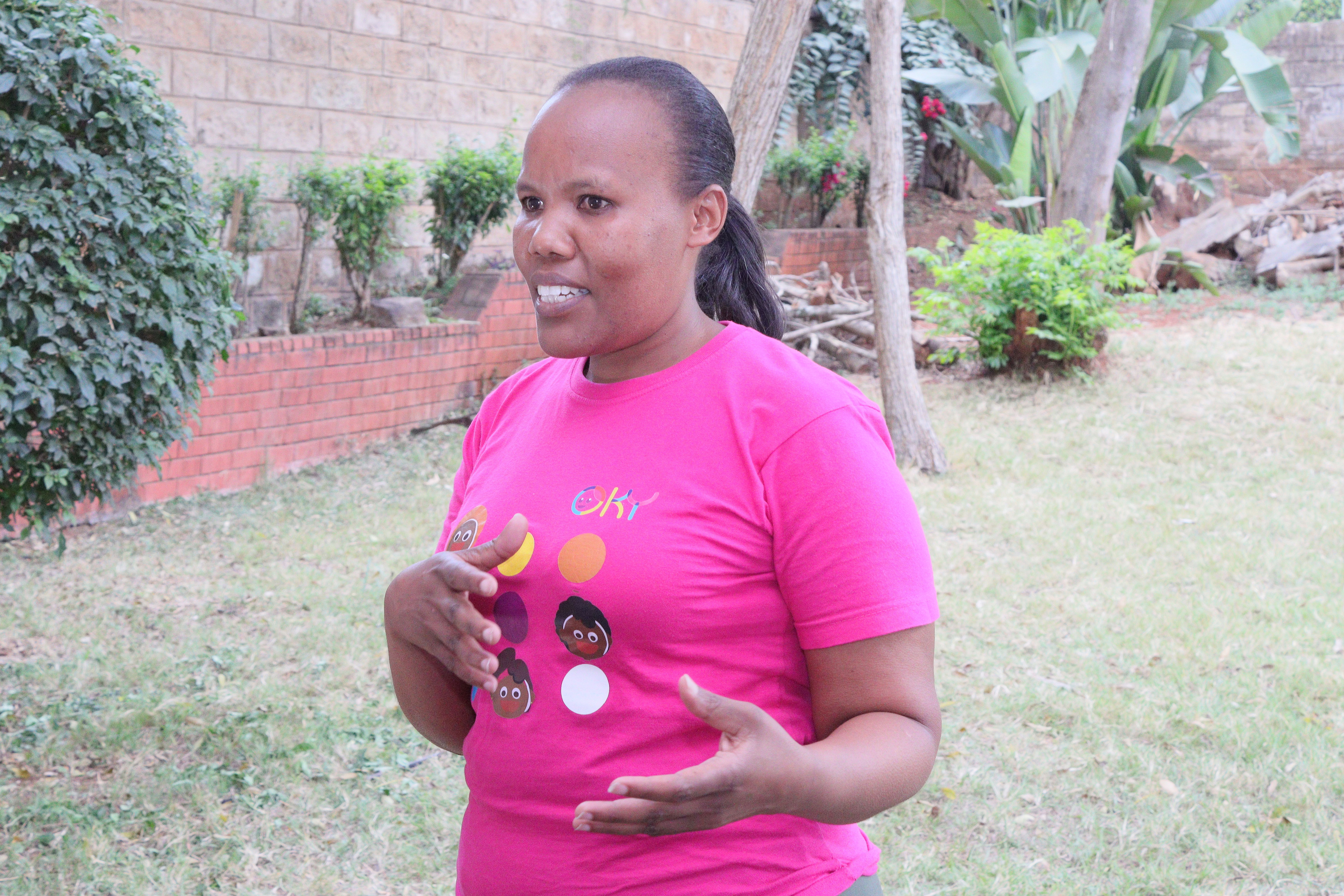
A picture of Ruth Njeri, a parent to three kids, two with albinism and the parents representative in the Black Albinism Chama.
We also presented our UVSAFE project to the guests in attendance, which is in alignment with our climate action program, its main aim being to make protective gear readily available to persons with albinism through an online app, UVSAFE. Additionally, we showcased our farming project that is already yielding produce and making sales across the country. The key takeaway from the event was that more needs to be done. Awareness and education about climate change should be complemented by access to essential tools. Sensitization efforts are required to combat discrimination and exclusion faced by individuals with albinism across various domains, including education and employment. The need for diverse sunscreen options tailored to different reactions among individuals with albinism was also highlighted and recommended for possible change.
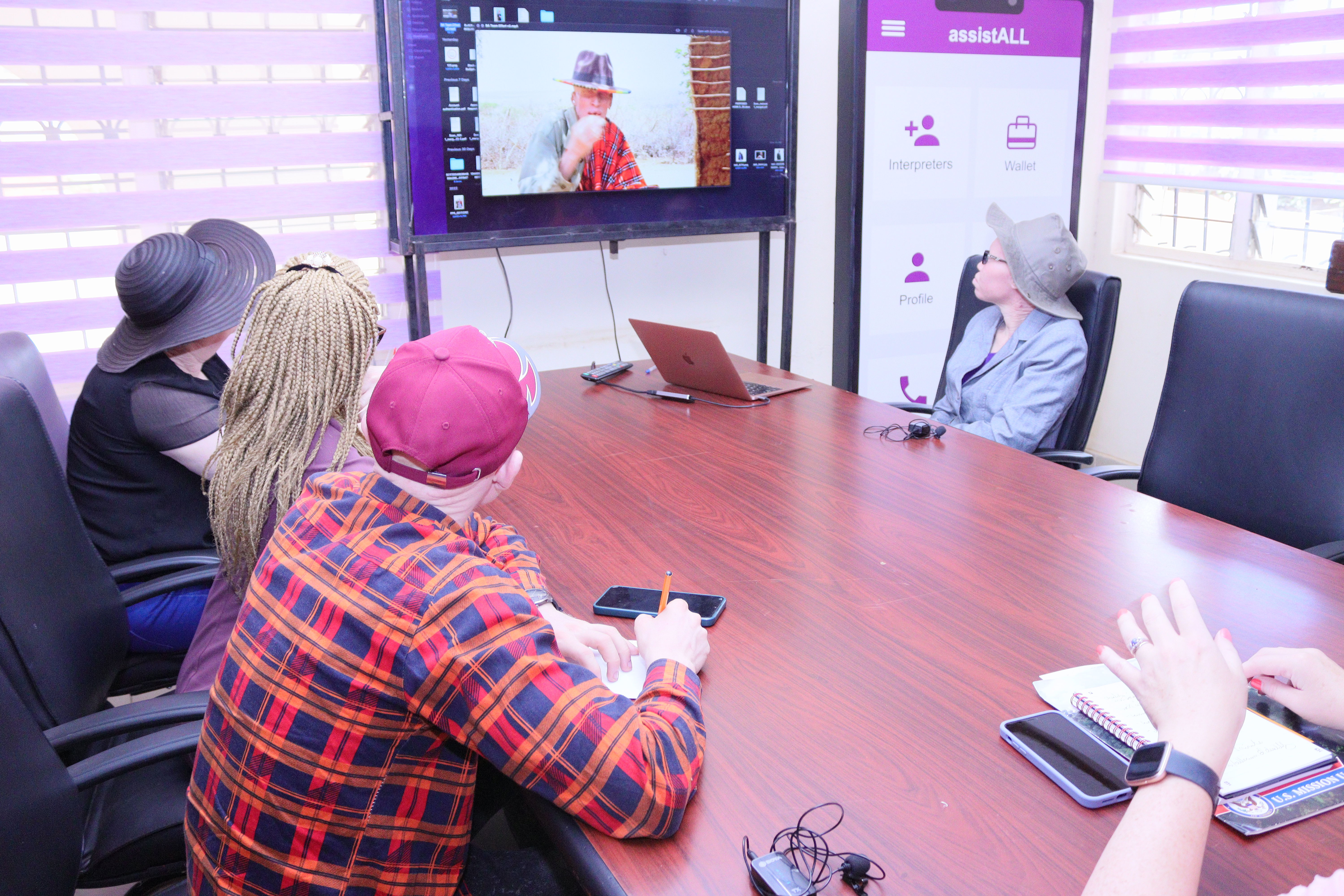
A picture of the attendees of the event watching a documentary on climate change.
The involvement and commendations from the US Embassy have motivated Black Albinism to continue with efforts towards economic empowerment, inclusivity, and zero tolerance for exclusion and discrimination against individuals with albinism in their community.